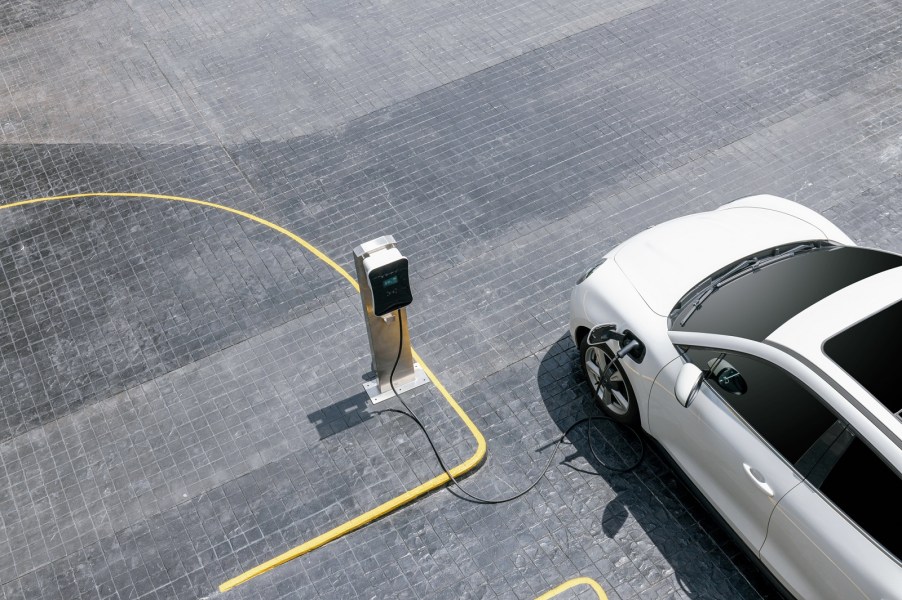
17 most common pros and cons drivers cite about EV ownership [Study]
Simon & Kucher’s 2023 Global Automotive Study ranked the benefits and drawbacks of EVs. The study surveyed more than 8,000 consumers with are either considering EV ownership or who already owned an electric car.
Based on the survey results below, I’ve listed the 17 most commonly cited pros and cons of EV ownership. The concepts are in order of selection, with the most common answers at the top.
| Pros (EV owners) | Cons (EV doubters) |
| Better for the environment – 50% | High purchase price – 48% |
| Better driving experience – 41% | Insufficient range – 39% |
| Charging EVs is cheap – 37% | Insufficient charging infrastructure – 38% |
| Cheaper to maintain – 34% | No home charging available – 34% |
| Governmental financial benefits – 32% | Time-consuming charging – 28% |
| Conventional cars are increasingly regulated – 25% | Doubts about sustainability – 18% |
| I like their design – 24% | Doubts about safety – 12% |
| More independent when recharging – 20% | Not enough engine power – 11% |
| Do not like their design – 7% |
Are Americans ready to accelerate EVs to 50% of all new car sales by 2030?
As we’ve regularly reported here at MotorBiscuit, consumer sentiment for EVs seems positive at the highest level. Philosophically, drivers seem to agree that we need to move away from petroleum-based fuels. As the survey suggests, folks say that EVs are better for the environment. Of course, time will tell if that’s true, considering the massive amount of materials and resources it takes to produce EVs and the associated charging infrastructure.
Respondents also feel that EVs offer a better driving experience than gas-engined vehicles and are cheap to charge. However, we’ve cited battery repair and replacement expense as a highly restrictive aspect of used EV ownership. After all, most EVs on the road today haven’t reached the end of their original battery life, which currently costs consumers anywhere from $5,000 to $20,000 to make right again (per Cars.com).
The survey also looked at “EV doubters” and provided that group’s most cited responses. In 2023, the topmost cited cons ran closely alongside the pros. Doubters cited high purchase prices, insufficient range, and insufficient charging infrastructure.
EV prices, range, and charging blockers remain
The cheapest new EV for sale in the U.S. market today is the Nissan Leaf. The compact EV starts at over $29K and only offers a range between 149 and 212 miles per charge. The next cheapest is the Mini Cooper hardtop. Combined, the two are either too small or don’t offer enough range for drivers to rely heavily on them. Typically, new SUV EVs with more space and better range start over $40K.
Indeed, after reading stories of folks switching back to ICE vehicles after trying out an EV, I think the U.S. has a long way to go before Americans will be comfortable with mass adoption. Again, the sentiments are mixed. We think EVs could, in theory, be a better bet at a global scale. However, the expense and lack of reliable infrastructure will be difficult to ignore until they are more fully addressed with the general population of car buyers and drivers in mind.



